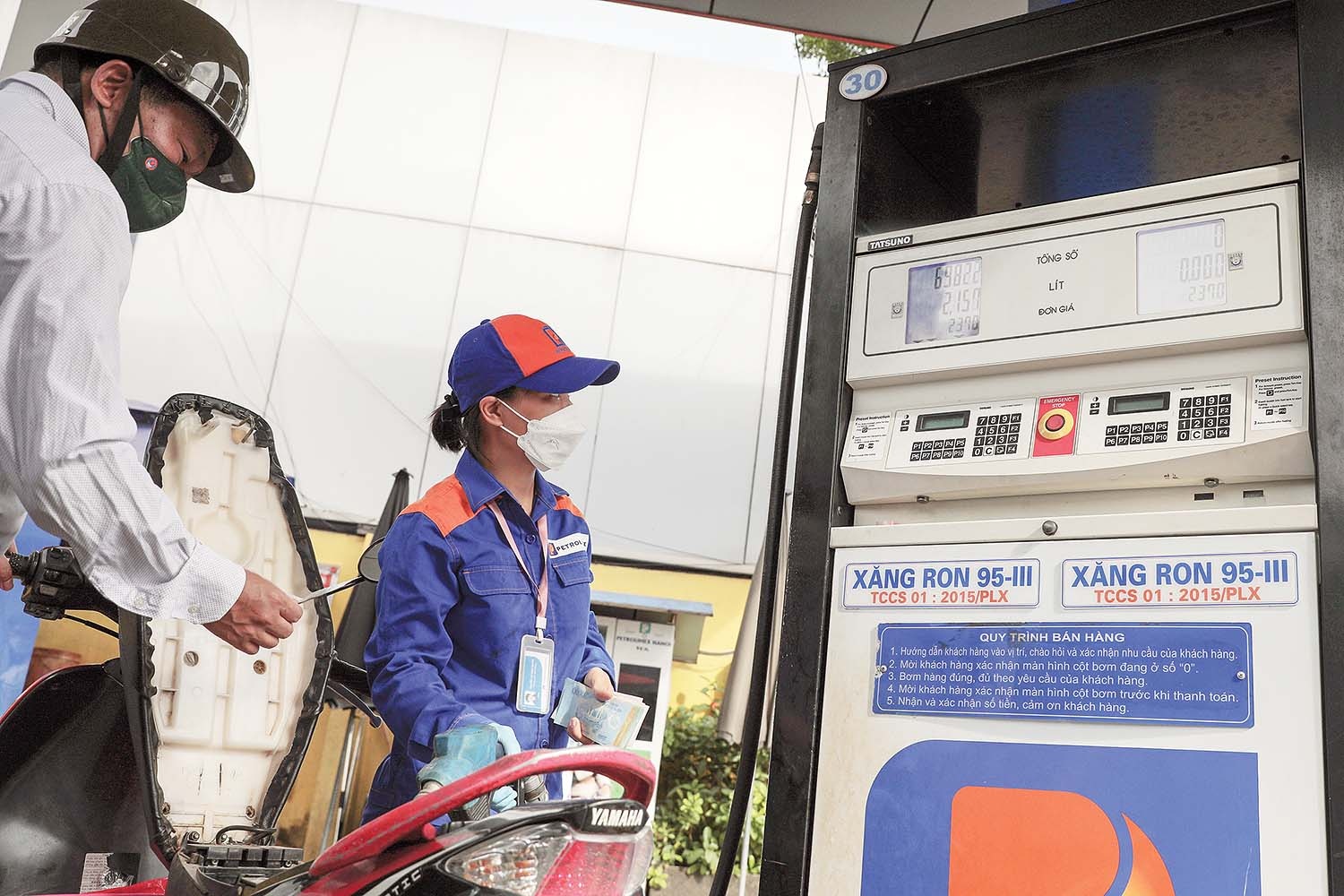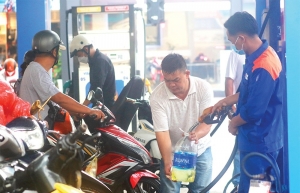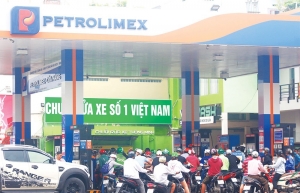Petrol retailers seek answers for current operations disarray
According to the Ministry of Industry and Trade (MoIT), many fuel retail businesses have been suspended or closed lately, particularly in some southern provinces and the Central Highlands. MoIT Deputy Minister Do Thang Hai at a press conference on October 12 said it is necessary to accurately assess how many businesses have suspended operations.
 |
| Petrol retailers seek answers for current operations disarray, Source:baodautu.vn |
“When petroleum supply is abundant or world prices tend to decrease, enterprises increase the amount of petrol and oil sold to the market, and thus the discount rate will increase, and vice versa. This is in line with the current reality,” Hai said.
In a specific case, depot enterprise Duc Giang in Hanoi applied a zero discount rate to distributors, including Chien Thang Petroleum Company from the northern province of Yen Bai.
Nguyen Thi Sinh, director of the company, said that Chien Thang is a loss-making business with negative capital. She said, “The transportation cost from Duc Giang’s warehouse to its agents is about VND700 (2.8 US cents) per litre. With the selling price of VND23,000 (93 US cents) per litre, depending on the current type, the business is losing up to VND1,300 (5.2 US cents) per litre.”
A document related to the inadequacies in the petroleum business in southern cities and provinces was sent to the prime minister on October 6. In this, 36 businesses requested that the authorities shall “understand the true meaning of the current discounts” as they would determine the stability of the market during the distribution and circulation of petrol.
These firms believe that the current base price formula is inappropriate and leads to the current retail price of petrol, which would be unsuitable for the economic activities of enterprises. This would lead to financial losses and cause market instability.
In this document, the 36 businesses suggested that the government should regulate the application of a fixed discount rate for retail businesses at no less than 6-7 per cent of the selling price per litre of petrol.
Moreover, the document proposed that the government could apply the rate proportionally and not according to a specific amount, so that if petrol prices rise or reduce in the future, they will remain stable. Conversely, if no agency discount is specified, the wholesale price (including transportation) should not be greater than 94 per cent of the specified retail price.
Some domestic analysts said that, although the petrol price has been reduced every 10 days, according to domestic economic analysts, it still cannot keep up with price fluctuations on the international market. Thus, they said that bringing the discount to zero could be a way for wholesalers to increase wholesale prices following the global momentum.
Two weeks ago, the MoIT and the Ministry of Finance (MoF) applied emergency solutions to tackle the disruption of the domestic petroleum supply chain. But they may not be strong enough to prevent supply disruptions in the future, such as in the last months of the year, when operational problems include cost norms for businesses.
At the same time, Minister Nguyen Hong Dien, at the National Assembly and other forums, asserted that the domestic supply can be guaranteed until the end of November, based on the petroleum production plan of Nghi Son and Binh Son refineries. According to their plans, they will produce around 4.4 million cu.m in the fourth quarter, accounting for 80 per cent of the total demand.
Nguyen Dinh Cung, former director of the Central Institute for Economic Management, said that there was no shortage of petroleum supply, but businesses would not import to avoid losses. In September, Vietnam spent $558 million to import petroleum, raising the import level of this item to $6.76 billion in the past nine months, up 129.4 per cent over the same period last year, according to the MoIT. “We have never fallen into a supply chain breakdown, even as the market fluctuated,” said Cung. “But if the distribution system is not stable and the price is being controlled too much, it is necessary to change the way of operating. The first action should relate to pricing, and that is the responsibility of the MoF first and foremost.”
 | Allowing businesses more of a say in petrol price structure Amid the current fluctuations of fuel prices, it is time to let businesses take care of price structuring themselves, while the state continues to monitor the market. |
 | Situation still acute in efforts to manage petrol supply The National Assembly Economic Committee last week asked the government to come up with timely responses to the petroleum supply issue, as fluctuations in the domestic market during the last month showed that problems in reserves and supply have not been completely resolved. |
What the stars mean:
★ Poor ★ ★ Promising ★★★ Good ★★★★ Very good ★★★★★ Exceptional
Related Contents
Latest News
More News
- Masan Consumer names new deputy CEO to drive foods and beverages growth (February 23, 2026 | 20:52)
- Myriad risks ahead, but ones Vietnam can confront (February 20, 2026 | 15:02)
- Vietnam making the leap into AI and semiconductors (February 20, 2026 | 09:37)
- Funding must be activated for semiconductor success (February 20, 2026 | 09:20)
- Resilience as new benchmark for smarter infrastructure (February 19, 2026 | 20:35)
- A golden time to shine within ASEAN (February 19, 2026 | 20:22)
- Vietnam’s pivotal year for advancing sustainability (February 19, 2026 | 08:44)
- Strengthening the core role of industry and trade (February 19, 2026 | 08:35)
- Future orientations for healthcare improvements (February 19, 2026 | 08:29)
- Infrastructure orientations suitable for a new chapter (February 19, 2026 | 08:15)

 Tag:
Tag:



















 Mobile Version
Mobile Version